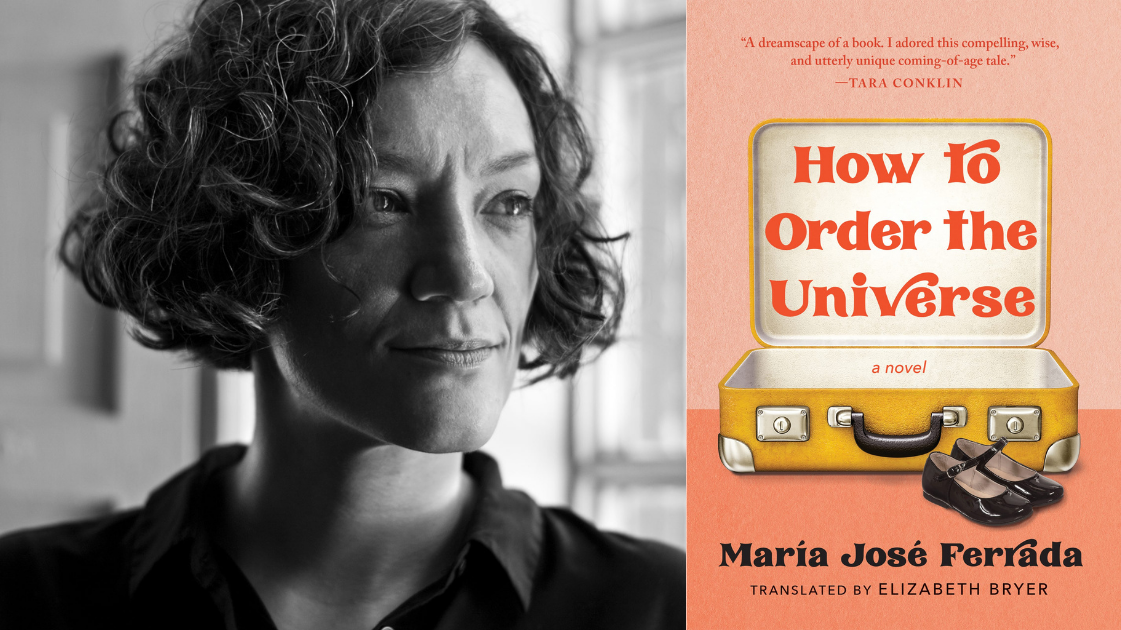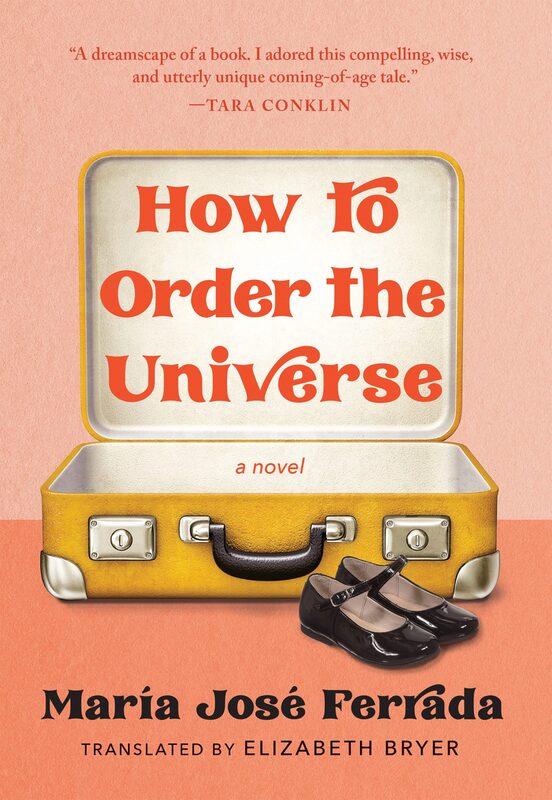How to Order the Universe
María José Ferrada
|
Conjuring images of Addie Loggins and her con man, itinerant, bible salesman father, Moses Pray in the 1973 film Paper Moon, Chilean children’s author, Maria Jose Ferrada’s How to Order the Universe translated by Elizabeth Bryer delights in the endearing story of an “inventive” (read conniving) traveling hardware salesman D and his seven-year-old daughter M who accompanies him on weekly business trips. Like Addie, protagonist M leverages her naivete as for her father’s burgeoning business. Of the role M plays in the business scheming, Ferrada writes, “I didn’t speak, only fixed my gaze on the person in charge. . . I had learned different kinds of gazes: an indifferent gaze, a sweet gaze with a touch of melancholy, . . . my final resort was the on-the-brink-of-tears gaze.” (40) The story itself reveals myriad layers, at turns, a hilarious story of an entrepreneurial father and daughter team, a glimpse into a mother’s depression, and the violence and repression of the Pinochet political regime circa 1970s-1980s. Ferrada’s background as a children’s author is evident in the use of a child’s point of view and in the madcap encounters of the father-daughter duo as they ply their wares. Underhanded tactics such as “cooking the books” with two separate accounting ledgers and other devious ploys set the tone for the family’s adventures. D concocts innumerable explanations for his daughter’s absence from school, all the while shrouding the details from his wife. The two antagonize a German shoemaker who sells only 1940s-era shoes in an effort to “stall time” in the hopes of returning to a “prewar peacetime period” in Germany. M and D cackle with delight, asking the shoemaker for modern shoes in order to hear him bellow about his opposition to World War II. M’s point of view contains the story while glossing over many of the subtleties of 1970s Chile. |
That sort of childlike innocence masks the historical realities of the era. The German shoemaker who desires a return to prewar Germany perhaps alludes to the nascent harboring of Nazis which emerged in Chile beginning in the 1930s. From M’s point of view, the shoemaker is simply nostalgic for “peacetime Germany” missing the specter of Nazism. In addition, M’s mother suffers from depression or what M describes as a “sadness” where her mother “who always seemed to be on another planet this time appeared to be striving to reach another galaxy.” (68) Through the introduction of E, a photographer and the manager of a cinema, we learn the cause of M’s mother’s depression. E secretly tracks down victims of the Pinochet regime, the “disappeared,” or the hundreds of individuals deemed threatening by the military presidency. Apparently, M’s mother has had friends disappear.
The book is as engrossing as it is unsettling. Chile, seen through the eyes of a young child, softens the atrocities of the Pinochet regime. Ferrada uncannily crafts a memorable story filled with hilarious madcap details. At the same time, M’s viewpoint blunts reality and provides a chilling take on the politics of the time.
Chilean author Maria Jose Ferrada is the author of many children’s books. How to Order the Universe is her first adult novel. She is the recipient of many literary awards, including the Academia Award for the best book published in Chile. She is the three-time winner of the Chilean Ministry of Culture award.
Elizabeth Bryer is a translator and writer from Australia. Her debut novel is titled From Here On, Monsters (2019).
How to Order the Universe is a publication by Tin House Books. Click here to purchase.
The book is as engrossing as it is unsettling. Chile, seen through the eyes of a young child, softens the atrocities of the Pinochet regime. Ferrada uncannily crafts a memorable story filled with hilarious madcap details. At the same time, M’s viewpoint blunts reality and provides a chilling take on the politics of the time.
Chilean author Maria Jose Ferrada is the author of many children’s books. How to Order the Universe is her first adult novel. She is the recipient of many literary awards, including the Academia Award for the best book published in Chile. She is the three-time winner of the Chilean Ministry of Culture award.
Elizabeth Bryer is a translator and writer from Australia. Her debut novel is titled From Here On, Monsters (2019).
How to Order the Universe is a publication by Tin House Books. Click here to purchase.
|
Comment Box is loading comments...
|
|









